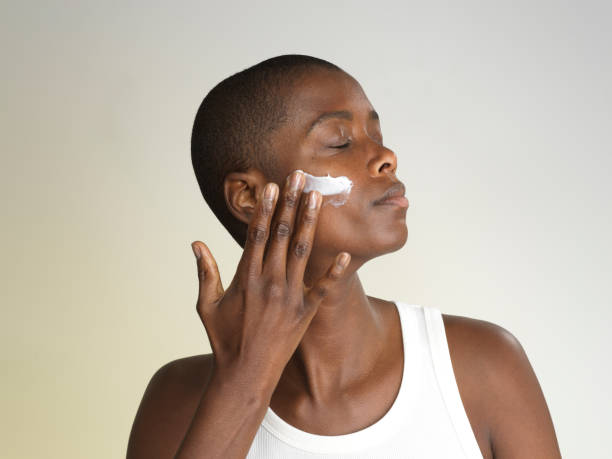
If your skin won’t stop itching, cracking, rashing, oozing, or crusting, there’s a good chance something is wrong. An inflammatory skin condition most common in brown-skinned folks (how lucky), eczema can produce a whole range of unsightly scabs, scales, and scars. At their worst, eczema flare-ups can persist for weeks, leading to the most severe symptoms in Black individuals.
With many forms, each having varying symptoms, sometimes it feels like you’re playing a game of whack-a-mole! This is why you should always speak to your doctor or dermatologist first.
When you’re suffering from this sometimes life-disrupting condition, make sure you have the facts.
Here are seven must-knows about eczema and its effects on ebony skin…
1. There are 7 Types of Eczema
Although atopic dermatitis is the most common form among brown-skinned folks, it is usually found in children, with symptoms cropping up before age six. The typical symptoms are itchy, dry, and inflamed skin. But there are also many other types of eczema, some affecting different areas of the body with different symptoms.
These other types include:
- Contact dermatitis - triggered by the environment
- Dyshidrotic eczema - Causes burning, blisters, and rashes
- Neurodermatitis - Leads to itchy and scaly patches
- Nummular eczema - leads to tiny, rounded lesions, usually on the legs and arms
- Seborrheic dermatitis - Causes inflammation of the scalp
- Stasis dermatitis - Causes discoloration on the legs
2. Eczema Goes Beyond the Skin
According to the National Eczema Association, eczema isn’t just skin deep. If you’ve got the common form of atopic dermatitis, you’re also way more likely to have allergies, asthma, and hay fever. In fact, more than 50 percent of people with atopic dermatitis also develop symptoms of allergy-induced asthma, like coughing, wheezing, and difficulty breathing.
So, if you’ve got one or more related conditions, you should talk with your doctor about additional screenings and tests.
RELATED: How To Deal With Your Eczema & Post-Inflammatory Hyperpigmentation
3. Symptoms Can Occur At Any Age
At one point, eczema was believed to affect children almost exclusively. After years of research and diagnoses, the science has totally changed! In fact, eczema can affect you after the age of 60 almost as frequently as it can if you’re under 18.
Even if you get it in your childhood and symptoms go away, it can always resurface years or decades later. One reason eczema affects older people is because of the natural weakening of the skin, which then allows those pesky germs in for fun.
4. Different Strokes for Different Folks
Depending on your skin tone and type, your experience with eczema may look completely different than someone else’s. Brown skin in particular manifests symptoms in very unique ways. The typical redness of eczema may actually appear dark brown, purple, or even a grayish hue.
Even more, Black folks will usually experience different symptoms, such as bumps around hair follicles and on the arms, legs, and torso. Dark circles around the eyes and noticeable color changes in healed skin are also more common in Black eczema sufferers.
5. Genetics Play a Role
Some people have beautiful, seemingly ageless skin whereas others are constantly battling all kinds of things! Well, turns out there's a good reason for this. Beyond environment and lifestyle, your genetics may also play a role in the development and severity of eczema.
Research indicates that the FLG gene, responsible for making proteins in your skin, may be more likely to mutate in people of African descent. This can help explain why the condition is more common in brown skin.
6. No Two Treatments Are the Same
As you can guess, treating eczema is about treating you. In other words, a personalized treatment method is the only way to go. Because eczema comes in seven fun varieties, with numerous differing symptoms, no one size (treatment) fits all.
Some moisturizers and lotions may be good for someone else but worsen your flare-ups. Sometimes, steroids and medications are needed, sometimes they’re not. You also have to consider how various treatments affect other conditions related to eczema, such as asthma and allergies. As always, speak to your dermatologist about what works for you!
7. There Is No Cure, But…
Speaking of treatments, eczema is not something that entirely goes away. Depending on the type and severity, up to 90 percent of cases in children can be managed by adulthood. But don’t let the relief of symptoms catch you off guard. The best thing you can do is be proactive. Know your triggers, eat well, stay hydrated, and keep a positive outlook.
While eczema may pose a greater risk in darker skin, this is not a life-threatening condition. Many sufferers can live normal, healthy, happy lives, albeit with a lil’ sacrifice and caution!









